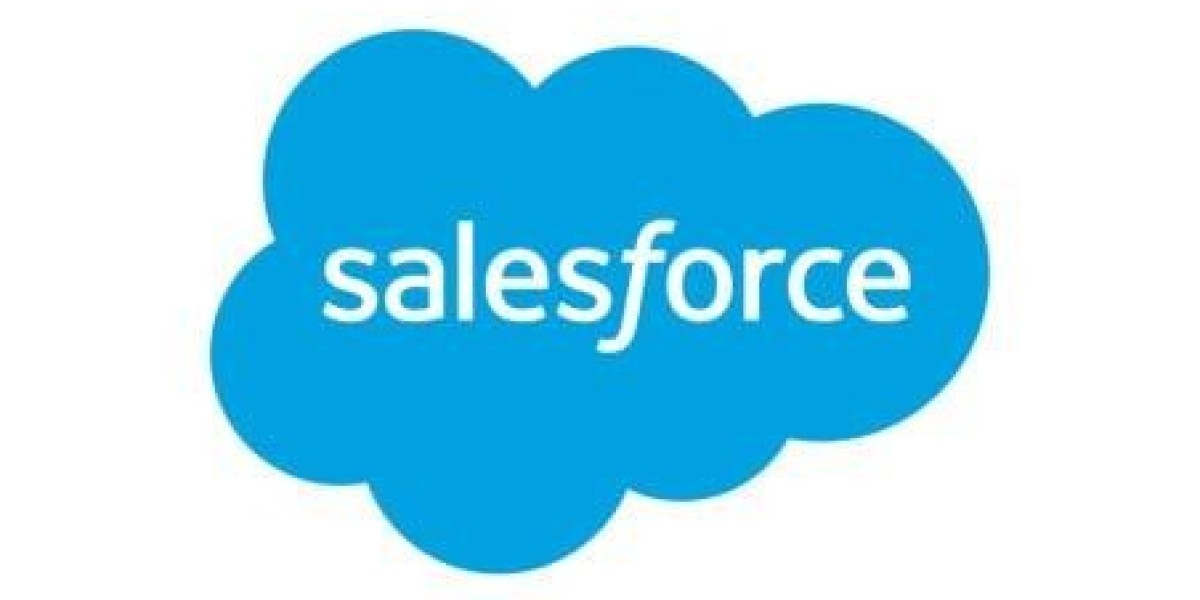In today's dynamic philanthropic landscape, nonprofit organizations face increasing pressure to maximize their impact, streamline operations, and cultivate deeper relationships with donors and beneficiaries. Technology plays a pivotal role in achieving these goals, and Salesforce Nonprofit Cloud stands out as a powerful platform tailored to the unique needs of the sector. However, harnessing the full potential of this robust system requires careful planning, expert execution, and ongoing optimization. This ultimate 2025 guide delves into the intricacies of Salesforce Nonprofit Cloud implementation services, providing a comprehensive roadmap for organizations seeking to transform their operations and amplify their mission.
Understanding the Power of Salesforce Nonprofit Cloud
Before exploring implementation services, it's crucial to understand why Salesforce Nonprofit Cloud has become the platform of choice for countless organizations worldwide. It's more than just a Customer Relationship Management (CRM) system; it's a holistic ecosystem designed to address the specific challenges and opportunities within the nonprofit realm.
Constituent Relationship Management: At its core, Nonprofit Cloud enables organizations to build a 360-degree view of their constituents – donors, volunteers, beneficiaries, partners, and staff. This unified profile allows for personalized communication, targeted engagement strategies, and a deeper understanding of individual needs and preferences. Imagine effortlessly tracking donor history, volunteer participation, and beneficiary interactions all in one place, leading to more meaningful connections and increased support.
Fundraising and Development: Nonprofit Cloud provides powerful tools to manage fundraising campaigns, track donations, automate acknowledgments, and analyze giving patterns. Features like gift entry, grant management, and moves management empower development teams to cultivate relationships with major donors, optimize fundraising efforts, and ultimately increase revenue. Consider the ability to segment donors based on giving history and tailor appeals for maximum impact, or to seamlessly manage the entire grant lifecycle from application to reporting.
Program Management: Efficiently managing programs and services is paramount for nonprofits. Nonprofit Cloud offers functionalities to track program enrollment, manage service delivery, measure impact, and report on outcomes. This allows organizations to demonstrate their effectiveness, identify areas for improvement, and ensure resources are allocated effectively. Picture the ability to track the progress of beneficiaries through different program stages, measure the impact of specific interventions, and generate reports for stakeholders with ease.
Marketing and Communications: Reaching the right audiences with the right message is crucial for awareness and engagement. Nonprofit Cloud integrates with marketing automation tools, enabling organizations to create targeted email campaigns, manage social media interactions, and personalize communications based on constituent data. Think about the ability to send tailored newsletters to different donor segments or to automate thank-you emails upon receiving a donation, fostering stronger relationships.
Reporting and Analytics: Data-driven decision-making is essential for sustainability and growth. Nonprofit Cloud offers robust reporting and analytics capabilities, allowing organizations to track key performance indicators (KPIs), measure progress 1 towards goals, and gain valuable insights into their operations. Envision generating reports on fundraising trends, program effectiveness, and volunteer engagement to inform strategic planning and demonstrate impact to funders.
Navigating the Implementation Journey: Why Expert Services Matter
While Salesforce Nonprofit Cloud offers immense potential, its successful implementation requires specialized knowledge and experience. Engaging professional implementation services can significantly mitigate risks, accelerate timelines, and ensure the platform is configured to meet the unique needs of your organization. Here's why expert guidance is invaluable:
Deep Understanding of Nonprofit Needs: Implementation partners specializing in the nonprofit sector possess a nuanced understanding of the challenges and opportunities specific to these organizations. They can translate your mission and goals into practical Salesforce solutions, ensuring the platform aligns with your unique workflows and requirements. They understand the intricacies of fund accounting, grant reporting, and constituent engagement in a nonprofit context.
Technical Expertise and Best Practices: Implementing Salesforce involves complex technical configurations, data migration, integrations with other systems, and customization. Certified Salesforce consultants bring the technical expertise and knowledge of best practices to ensure a smooth and efficient implementation. They can navigate the intricacies of the Salesforce platform, ensuring optimal performance and scalability.
Strategic Planning and Requirements Gathering: A successful implementation begins with a thorough understanding of your organization's needs and objectives. Experienced consultants will work closely with your team to define clear goals, document requirements, and develop a comprehensive implementation plan. This collaborative approach ensures that the final solution addresses your specific pain points and supports your strategic priorities.
Customization and Configuration: Nonprofit organizations often have unique processes and data requirements. Implementation experts can tailor the Nonprofit Cloud to your specific needs through configuration, customization, and the integration of relevant AppExchange solutions. This ensures the platform works seamlessly with your existing workflows and provides the functionality you need. For example, they can customize fields to track specific program outcomes or configure workflows for automated grant approvals.
Data Migration and Integration: Migrating data from legacy systems and integrating Salesforce with other critical applications (e.g., accounting software, email marketing platforms) requires careful planning and execution. Implementation specialists have the expertise to ensure a seamless and accurate data migration process and establish robust integrations. Imagine a smooth transition of your donor database without any data loss or inconsistencies.
Training and Change Management: Implementing a new system impacts your entire organization. Implementation services often include comprehensive training programs to equip your staff with the skills and knowledge to effectively use the Nonprofit Cloud. They can also provide guidance on change management strategies to ensure user adoption and minimize disruption. Effective training ensures your team can confidently leverage the new system to its full potential.
Ongoing Support and Optimization: The implementation process doesn't end at go-live. Reputable implementation partners offer ongoing support, maintenance, and optimization services to ensure your Nonprofit Cloud continues to meet your evolving needs. They can provide troubleshooting, implement updates, and help you leverage new features as they become available. This ensures your investment continues to deliver value over time.
Key Considerations When Choosing an Implementation Partner in 2025
Selecting the right implementation partner is a critical decision. Here are key factors to consider in 2025:
Nonprofit Industry Expertise: Prioritize partners with a proven track record of successful Nonprofit Cloud implementations for organizations similar to yours. Look for case studies and testimonials that demonstrate their understanding of the sector's unique challenges and best practices.
Salesforce Certifications and Experience: Ensure the partner employs certified Salesforce consultants with deep expertise in Nonprofit Cloud. Verify their experience with implementations of similar complexity and scope.
Cultural Fit and Communication: Choose a partner whose values align with your organization's culture and who demonstrates clear and consistent communication throughout the engagement. A collaborative and transparent partnership is crucial for success.
Methodology and Approach: Understand the partner's implementation methodology and ensure it aligns with your organization's preferences and timelines. A well-defined and agile approach can contribute to a smoother and more efficient implementation.
Cost and Value: While cost is a consideration, focus on the overall value the partner brings. A more experienced partner may have a higher fee but can ultimately deliver a more effective solution and a greater return on investment.
Post-Implementation Support: Inquire about the partner's ongoing support and maintenance services. A partner who offers long-term support can be invaluable for maximizing your investment and addressing future needs.
The Future of Nonprofit Cloud Implementation in 2025 and Beyond
The Salesforce ecosystem is constantly evolving, and Nonprofit Cloud is no exception. In 2025 and beyond, we can expect to see further advancements in areas such as:
Artificial Intelligence (AI) and Machine Learning (ML): Expect more AI-powered features within Nonprofit Cloud to enhance fundraising predictions, personalize constituent engagement, and automate routine tasks. Implementation partners will need expertise in leveraging these emerging technologies.
Integration with Emerging Technologies: Nonprofit Cloud will likely see deeper integrations with new technologies such as blockchain for transparent donations and enhanced data security, and more sophisticated digital engagement platforms.
Focus on Data Privacy and Security: With increasing regulations around data privacy, implementation partners will play a crucial role in ensuring Nonprofit Cloud implementations adhere to the highest security standards.
Mobile-First Design: As mobile engagement becomes increasingly important, implementation services will focus on optimizing the Nonprofit Cloud experience for mobile devices, both for staff and constituents.
Enhanced Analytics and Visualization: Expect more sophisticated analytics tools and data visualization capabilities within Nonprofit Cloud, requiring implementation partners to have expertise in data analysis and reporting.
Conclusion: Investing in Expertise for Transformative Impact
Implementing Salesforce Nonprofit Cloud is a significant investment that can yield transformative results for nonprofit organizations. By streamlining operations, enhancing constituent engagement, and empowering data-driven decision-making, it enables organizations to amplify their impact and achieve their mission more effectively. However, the success of this endeavor hinges on choosing the right implementation partner. By carefully considering your organization's unique needs and selecting a partner with deep nonprofit expertise, strong technical skills, and a collaborative approach, you can ensure a successful implementation that sets your organization up for continued growth and impact in 2025 and beyond. Investing in expert implementation services is not just an expense; it's a strategic investment in your organization's future and its ability to create lasting positive change in the world.








